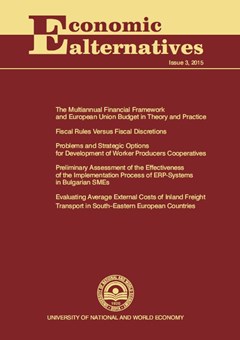Fiscal Rules Versus Fiscal Discretions
Author: Nikolay Velichkov
Abstract
This paper studies the fiscal rules and fiscal discretions in the context of fiscal stabilization policy. The study supports the need for complementarity of discretionary fiscal measures and the operation of automatic budget stabilizers. The last global economic crisis provides the necessary conditions for the empirical verification of this complementarity in EU member states. Analysis suggests that old EU member states employ stronger countercyclical discretionary fiscal measures at lower levels of automatic budget stabilizers. New EU member states, on the other hand, witness weaker countercyclical and even procyclical fiscal measures when automatic budget stabilizers are weak.

